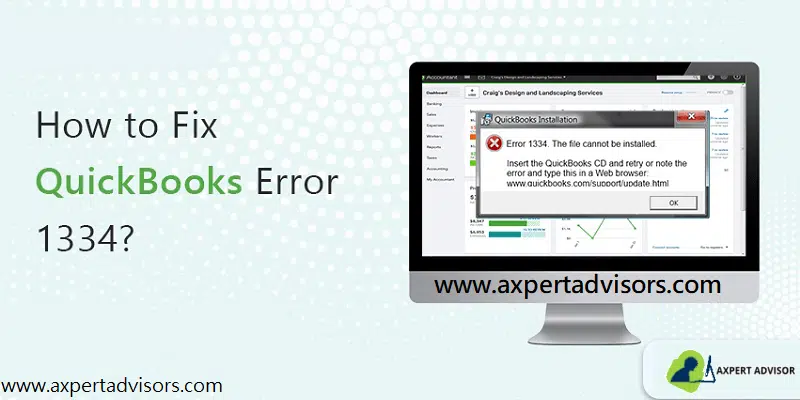Learn how to fix QuickBooks Error 1334 and prevent this technical snag from reoccurring:
Have you received any of the following errors while installing, updating, or using QuickBooks accounting software? Well, this is an installation error that generally occurs when there is a problem with the installation process or when a file that is required for installation is missing or not able to found. This error typically appears with the following error message:
- Error 1334. Error writing to file [File Name]. Verify that you possess access to that directory.
- Error 1334. The file can’t be installed. Insert the QuickBooks CD and retry.
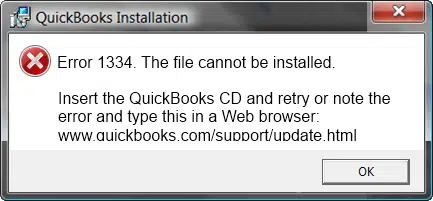
These error messages denote that QuickBooks has encountered a technical issue that forces it to shut down immediately. There may be other signs indicating this error – such as the computer getting slow, or giving no response to commands through keyboard and mouse, crashing of the current program on the software, etc.
What Does QuickBooks Install Error Means?
QuickBooks Install Error 1334 is among the most common errors observed by QuickBooks users and may be observed at any time. Despite of this, you don’t need to worry about this error a lot as it’s easily fixable if you know the right set of solutions to perform for its rectification. This blog post will elaborately discuss the varied causes and solutions of this problem. So, read on!
Read it also: Solutions to Resolve the QuickBooks Error Code 6210
Chief causes leading to QuickBooks Error 1334
To fix any type of QuickBooks error, it becomes pertinent for the users to know the various causes triggering them. In the case of QuickBooks Error 1334, the possible causes are given as under:
- Your computer might be infected by a Virus or Malware, which may have also affected your QuickBooks files.
- Incomplete or faulty installation of QuickBooks or system updates might be another reason.
- While freeing up the system space, user may have accidentally deleted some important QuickBooks files.
- Windows Registry files may have some corruption.
- QuickBooks files may be damaged due to certain corruption or data damage issues.
Different Methods to Troubleshoot QuickBooks Error 1334
Now that you know what may have caused this issue, you can go for the implementation of the various troubleshooting steps to fix it. In this section, we have described some of the most reliable solutions to fix QuickBooks Install Error 1334 after consulting our certified QB experts. Log into your accounting software as an admin and try these solutions individually in the order provided.
Solution 1: Perform a Clean Install of QuickBooks Desktop
Before you perform this solution, ensure that you have created a backup copy of all your essential files, so you don’t lose them.
- To kick start the process, hit the Start button and then head to the Control panel.
- Herein, you need to choose the option to uninstall QuickBooks.
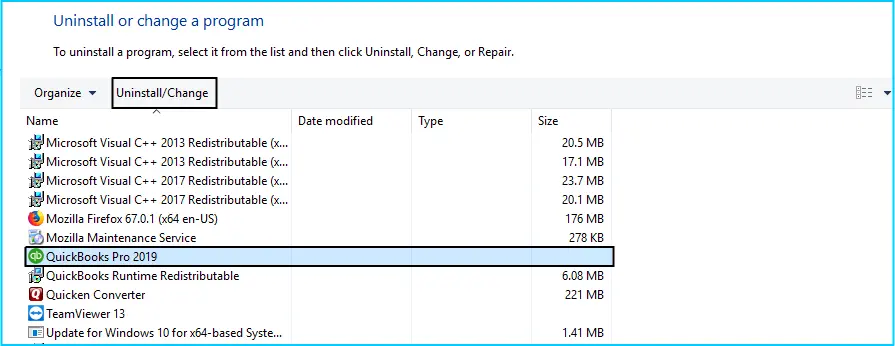
Next, download and run the QuickBooks clean install tool.
- Download the QuickBooks_Clean_Install_Tool.exe from Intuit website and save it.
- Open the .exe file by double-tapping on it and subsequently go through and accept the license agreement.
- Choose the QuickBooks Desktop version you are using and hit on the option to Continue.
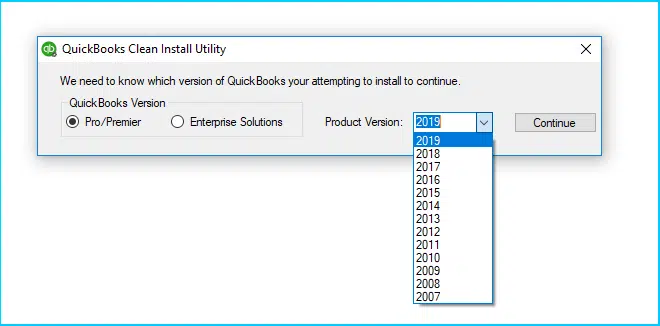
- After you receive the message that reads, “QuickBooks is now ready for a clean install, please install to the default directory,” press OK.
Now, rename all the folders (QuickBooks Desktop Installation folders) as mentioned below:
- C:\ProgramData\Intuit\QuickBooks (year).
- C:\Users\(current user)\AppData\Local\Intuit\QuickBooks (year).
- C:\Program Files\Intuit\QuickBooks(year).
- 64-bit version C:\Program Files (x86)\Intuit\QuickBooks (year).
After renaming the folders, install QuickBooks Desktop. Check if this troubleshooting step has resolved your error. If the error is not yet compromised, try the following solutions, as they may also fix this QuickBooks error. Malware and other infections as well may cause Install error 1334.
- Run a complete antivirus/ malware scan of your system and fix any contagious files detected.
- After that, perform a Disk clean operation and remove temporary files.
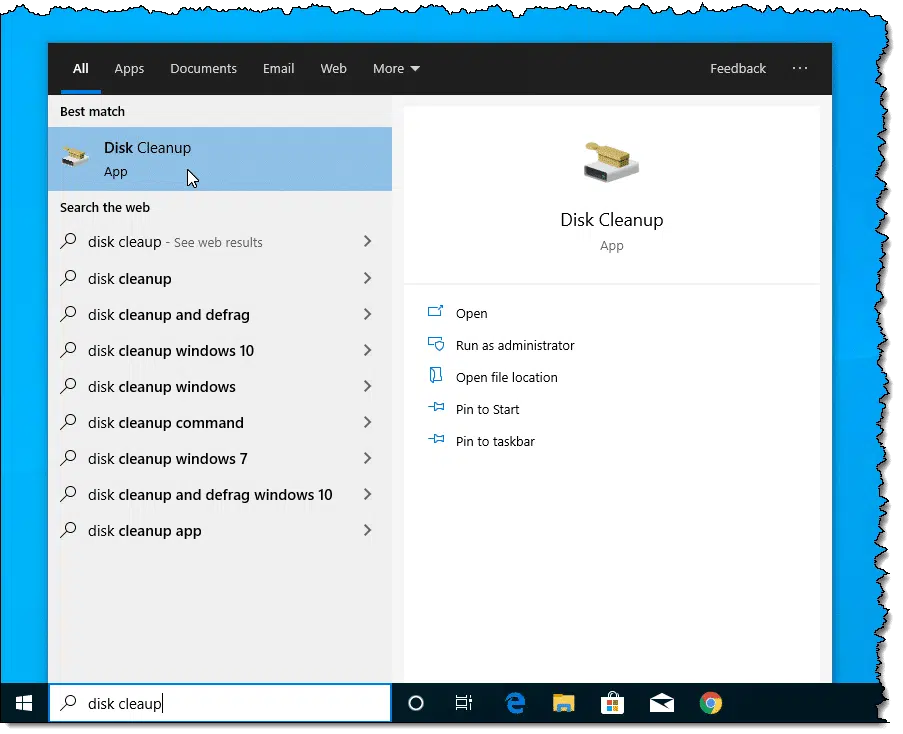
- See if your computer is up to date and does not install any available Windows updates.
- Keep your QuickBooks updated and of the latest version.
See it also: How to Fix QuickBooks Error Code 80070057?
Solution 2: Manually fix Microsoft .NET Framework errors
There is also an avenue of resolving the error 1334 in QuickBooks by yourself. To do this, you don’t need to be technically proficient; all you will need to do is follow the below-given directions. So, let us head forward and implement the manual troubleshooting procedure.
For Windows 11, 10, 8.1, and 8 users
- The initial step is to close all the open programs from your system.
- After that, visit the Windows Start menu.
- The next step is to type ‘Control Panel’ into the search bar and then launch the Control Panel.
- Then, navigate to the Programs and Features.
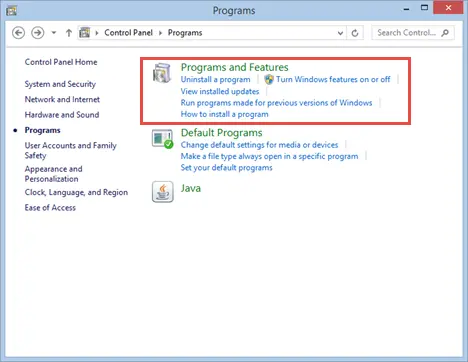
- Now, choose to Uninstall a Program option here.
- The next step is to turn Windows features on or off and find .NET Framework on the list.
- Choose Microsoft .NET Framework 4.5 (or a later version) in the Programs and Features window.
- You need to click on it and then choose the Uninstall/Change tab.
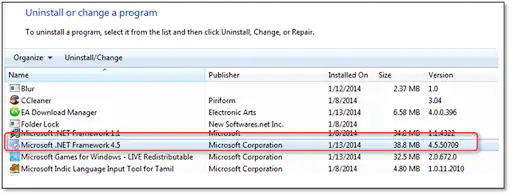
- Also, choose Repair and then hit on the Next tab.
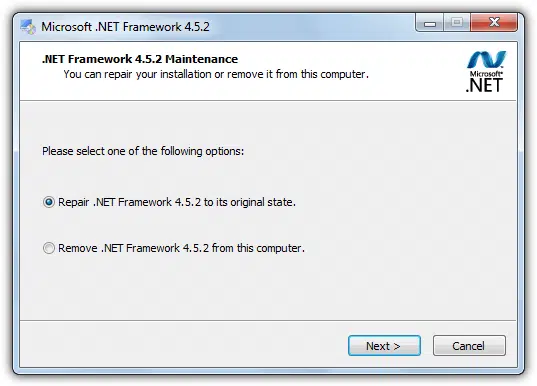
- You need to follow the on-screen instructions.
- Restart your computer once the repair process finishes.
For users working On Windows 7
- Initially, shut down all the open programs.
- After that, open the Windows Start menu.
- You need to type ‘Control Panel’ into the search and then access the Control Panel.
- After then, choose to Uninstall a Program.
- Now you need to Turn Windows features on or off and search .NET Framework in the list.
- Here you need to visit the Programs and Features window, and then choose Microsoft .NET Framework 4.5
- Now, tap on Uninstall/Change.
- Next, you need to choose the Repair option and then hit click on Next tab.
- Follow the screen instructions till the end.
- Lastly, reboot your system.
You need to verify the settings for both .NET Framework 3.5 SP1 and .NET Framework 4.5 (or later).
Solution 3: Accessing your PC in safe mode
When you access your system safely, you are assured that all the background processes/programs are closed. As such, you can assess whether the error is caused due to some conflicting program running in the background. However, if the error still pervades, it indicates that there may be some other cause for this error. Implement the steps below:
- In the beginning, tap on the Win+R keys together to launch the Run window.
- Within the Run box, introduce the word ‘MSConfig’ and follow it by tapping on the Enter key.
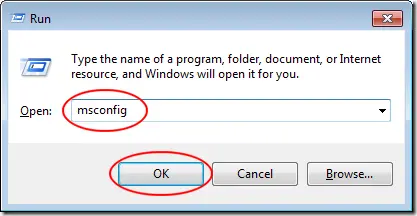
- Then, head to the ‘Boot‘ Option and visit the Safe Boot option.
- Now, sail to the Network option.
- Also, hit on OK & opt for the Network option.
- Now, you need to reboot the PC. Upon rebooting, on the boot screen, hit on the F8 keyboard function key several times and opt for the ‘Safe mode with Networking’ option.
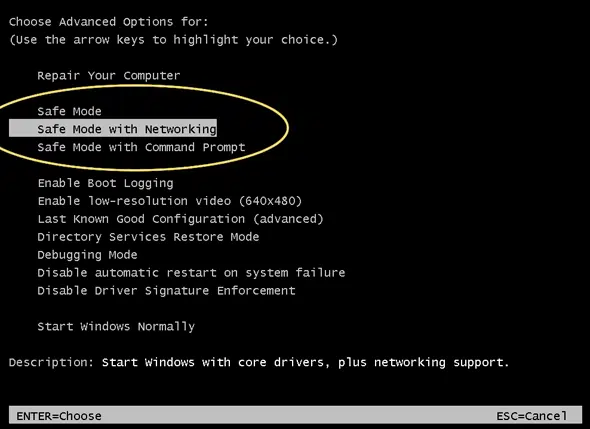
- Then, tap on the Enter key once.
- Wait till the Desktop is revealed.
- When open, launch your QuickBooks accounting software.
- Once open, visit the Help tab.
- Now, opt for the Update QuickBooks option & get the latest updates installed on the system.
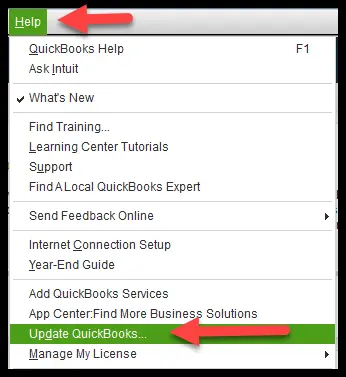
- Visit the Start Menu by hitting the Windows plus R keys to open the ‘Run‘ Window.
- Within the window, type ‘MsConfig.’
- Opt for the Safe Mode.
- Again, reboot the PC in normal mode.
- Access QuickBooks Desktop and install the new release(s).
Check Also: How to Create and Open Portable Company File in QuickBooks Desktop?
Solution 4: Opting for System Restore is a viable option
Reverting your PC to an earlier period should rectify the QuickBooks error 1334. To do the same, proceed as follows:
- To begin the process, access the PC as an administrator.
- Opt for Accessories and Programs.
- Head to System Tools.
- Opt for the option to Restore the PC at an earlier date.
- Choose the Restore Point
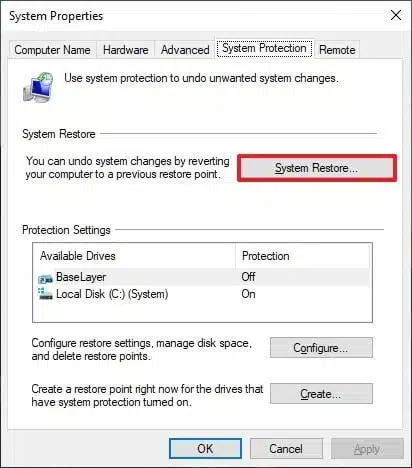
- Visit all the available options and opt for the recent restore option.
- Finally, reboot the PC to see if the error 1334 issue got resolved.
Solution 5: Make sure that the QuickBooks Company file extension is verified
Inspecting the QuickBooks extension and checking for its correctness is necessary. Any issue in the file extension can invoke the QuickBooks error 1334. To check the some, follow the instructions below:
- To start off, visit the following location: Drive: \Users \Public \Documents \Intuit\ QuickBooks through the Windows file explorer.
- Look for your Company File and check if the associated file extension (.qbw) is correct.
- If it is incorrect, right-click the file and hit on Rename.
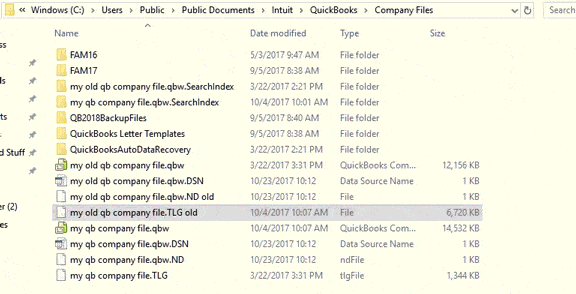
- Clear off the wrong file extension and remove the file name having (.qbw) extension.
- Finally, launch the QuickBooks software and verify that the error got sorted out.
Also see: How to Resolve QuickBooks Error 1402?
Let us wind up!
The QuickBooks Install Error 1334 is a common error; luckily, its ramifications aren’t that disastrous or complicated. You can just perform the steps in the above solutions to resume your regular accounting operations without facing the issue. If the problem persists even after trying out the solutions unraveled in this post, you can call our 24×7 QuickBooks Error Support Team at the helpline at 1-888-368-8874 for quick and advanced solutions.
Other helpful topics:
Steps to Fix QuickBooks Error Code 6189, 816

